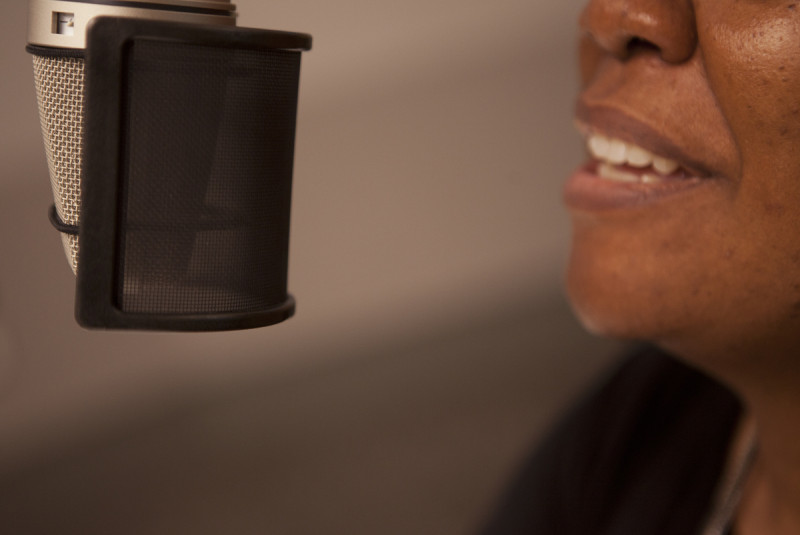Last week, Chenjerai Kumanyika, an African-American professor, hip-hop artist and public media fan, wrote an essay on the public media site Transom about the lack of diversity he experienced in listening to public media. Kumanyika wrote that while workshopping a radio piece, he became troubled to find himself modulating his voice to sound like popular podcasters Roman Mars and Sarah Koenig, who are white.
He wrote:
Those two very different voices have many complex and wonderful qualities. They also sound like white people. My natural voice — the voice that I most use when I am most comfortable — doesn’t sound like that. Thinking about this, I suddenly became self-conscious about the way that I instinctively alter my voice and way of speaking in certain conversational contexts, and I realized that I didn’t want to do that for my first public radio style piece.
Of course, I’m not alone in facing this challenge. Journalists of various ethnicities, genders and other identity categories intentionally or unintentionally internalize and “code-switch” to be consistent with culturally dominant “white” styles of speech and narration. As I wrote my script for my Transom workshop piece, I was struggling to imagine how my own voice would sound speaking those words. This is partially because I am an African-American male, a professor, and hip-hop artist whose voice has been shaped by black, cultural patterns of speech and oratory. I could easily imagine my more natural voice as an interviewee or as the host of a news style podcast about “African-American issues”, or even a sports or hip-hop podcast. Despite the sad and inexplicable disappearance of NPR shows like Tell Me More, I can find many examples of African-American hosts of both of those kinds of media. But in my mind’s ear, it was harder to hear my voice, that is to say my type of voice, as the narrator of the specific kind of narrative, non-fiction radio piece that I was making.
Kumanyika then posted an audio clip of a conversation he had with a collaborator of his, A.D. Carson. When he asked Carson what he heard when he listened to "This American Life" and other public radio shows, Carson said, "I hear middle-aged white dudes who sound like they just drank some really warm coffee."
On Thursday, NPR's Code Switch hosted a Twitter chat on the subject with Kumanyika and some minority public-radio journalists, plus commenters from the general public. The chat was moderated by Code Switch lead blogger Gene Demby. The journalist participants included our own morning newscaster, Joshua Johnson.
Here's the full list of those taking part.
